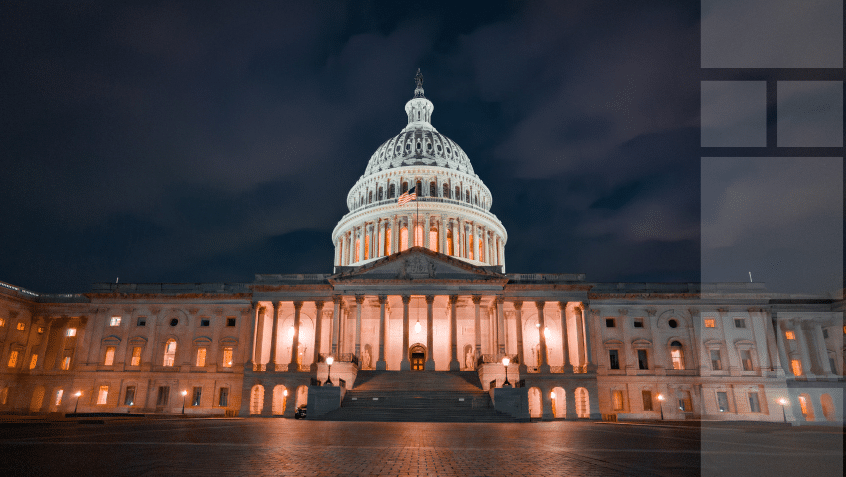For global investors and institutional asset managers, Moody’s downgrade of US sovereign debt is more than a symbolic signal — it’s a market event with portfolio-level consequences. The move by Moody’s to cut the US rating to Aa1 reflects growing concern about long-term fiscal stability, and it forces investment professionals to reassess Treasury exposure, sovereign risk modeling, and forward-looking allocation strategies.
Downgrade with Real Implications
When Moody’s stripped the United States of its triple-A rating after markets closed last Friday (May 16), it cited a “rising tide of debt” and prolonged fiscal inaction. While the downgrade does not change the fundamentals of the US economy, it marks a moment of strategic reflection for global investors.
Rising Debt and Political Gridlock
Moody’s decision did not occur in a vacuum. It followed years of fiscal strain amid gridlock in Washington. Federal debt has surged relative to GDP, and Moody’s projects deficits reaching nearly 9% of GDP by 2035, up from 6.4% in 2024.
The political context was pivotal. The downgrade came amid contentious showdowns over the debt ceiling and federal budget. As this blog went to press, the US House narrowly passed a sweeping tax and spending bill. The statutory debt limit, reinstated in January 2025 at $36.1 trillion, was fast approaching. Analysts warned that the United States could default by mid-July if Congress failed to act. The Trump Administration and Congress had prioritized tax relief and strategic investments to support economic growth, while maintaining a commitment to fiscal responsibility over the long term.
Moody’s warned that extending the 2017 tax cuts would significantly worsen the outlook, adding roughly $4 trillion to deficits over the next decade. Just hours before the downgrade, budget negotiations faced renewed challenges in Congress, underscoring the complexities of achieving bipartisan consensus on long-term fiscal solutions.
Investor Response and Repricing Risk
The downgrade jolted investors but did not trigger panic. Treasury yields jumped in early trading on Monday (May 19) and stocks dipped initially, reflecting routine market adjustments in response to updated credit assessments. “Very surprising…markets were not expecting this at all,” admitted one Wall Street trading head who was caught off guard by the downgrade. However, there was no mass exodus from US assets. Global investors continued to view Treasuries as a safe haven even with a lower rating.
For institutional investors, the downgrade serves as a reminder to revisit sovereign risk frameworks. Portfolio managers may need to adjust asset allocations, hedge exposure to US Treasuries, or recalibrate models that rely on triple-A-rated government debt as a benchmark. While the market response was muted, the rating shift could subtly influence capital weightings and collateral requirements.
Any rise in US borrowing costs was modest. Credit spreads on highly rated corporate and municipal bonds widened only slightly, signaling a minor repricing of risk rather than a loss of confidence. One notable move was gold’s surge above $3,200 per ounce — a flight-to-safety response. Meanwhile, the US dollar held firm, its reserve-currency status unshaken by a one-notch rating change.
Global Spillovers and EM Vulnerabilities
Moody’s downgrade of US sovereign debt carried symbolic weight far beyond American shores. Financial leaders from Frankfurt to Beijing watched closely, mindful that any shift in US credit conditions can send ripples through global markets. In this case, the ripples were subtle but significant. Global investors reassessed their portfolios over the weekend, balancing the slight uptick in US risk with conditions elsewhere. Emerging markets felt a chill. Some emerging economy bonds and currencies came under pressure as the news sparked a modest “risk-off” mood.
When the world’s benchmark risk-free asset is perceived as marginally riskier, investors often become more cautious toward riskier sovereigns. Indeed, analysts noted a small widening of emerging market sovereign bond spreads on Monday, and a few developing-nation currencies slipped as money moved toward dollar assets.
At the same time, higher US yields — even marginally higher — can attract capital flows out of emerging markets, raising their borrowing costs. For some emerging economies already navigating global financial tightening, the downgrade added a layer of complexity to their outlook. Some finance ministers from Asia and Africa voiced concern that their countries could face capital outflows or higher interest on new debt issuance if global investors demand a higher premium. The consensus among many economists, however, is that the overall impact on emerging markets likely will be contained.
Liability-driven investors, insurance companies, and global fixed income managers may face ripple effects if credit rating changes affect capital reserve calculations or yield expectations. Even minor shifts in perceptions of US credit quality can cascade through models that prioritize safety and duration matching.
Fiscal Credibility and the Investor Outlook
Despite the political drama and Wall Street jitters, the prevailing view in policy circles is that the United States retains extraordinary financial resilience. Moody’s itself acknowledged that US creditworthiness rests on “exceptional credit strengths” — a diverse and productive economy, unrivaled monetary flexibility, and the government’s unblemished record of honoring debt through every crisis. The downgrade has not changed the fact that US Treasury bonds remain the world’s safe asset of choice, underpinning the dollar-based international financial system. No other nation can yet match the United States’ capacity to issue debt at such scale, in its own currency, at relatively low cost.
The real question now is how US policymakers respond. The Moody’s downgrade is more than symbolic; it’s a warning to restore fiscal credibility. That means a medium-term plan to reduce deficits, stabilize debt-to-GDP, and improve policy predictability. As the IMF and others have noted, governance matters: recurring brinkmanship risks eroding investor confidence in Treasuries as the global benchmark.
For long-term investors, a credible bipartisan approach — focused on spending discipline, targeted revenue, and durable policy frameworks — could reinforce the US Treasury market’s central role in global finance. In contrast, ongoing gridlock may lead to higher risk premiums or a shift toward sovereign diversification.
Early signals are modest but encouraging. Lawmakers have revived talks on a fiscal commission, and the White House has shown openness to reform. For markets, what matters isn’t the downgrade — it’s the path forward. The world still depends on a financially sound America. Investors will be watching whether Washington treats this as a warning — or an opportunity.
























